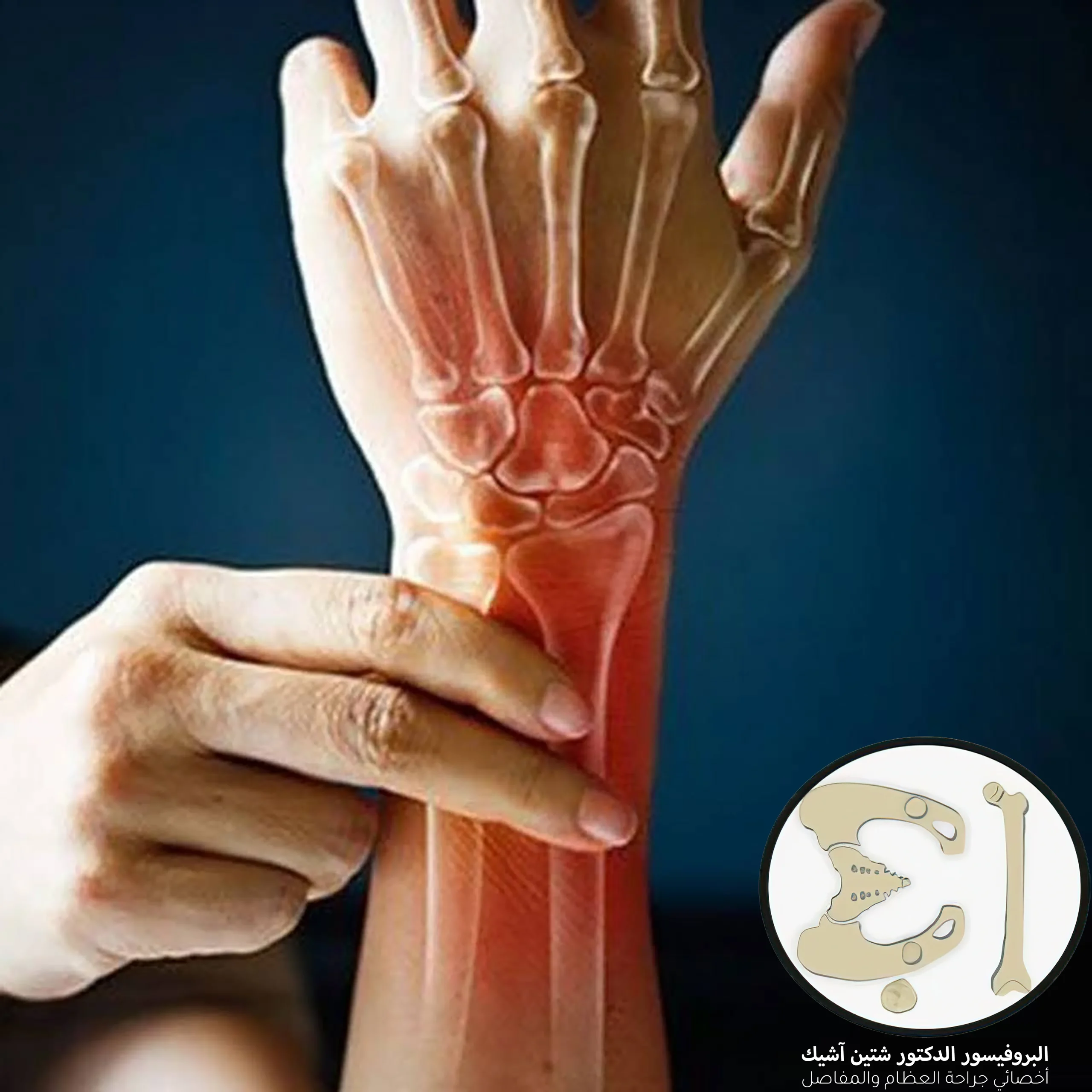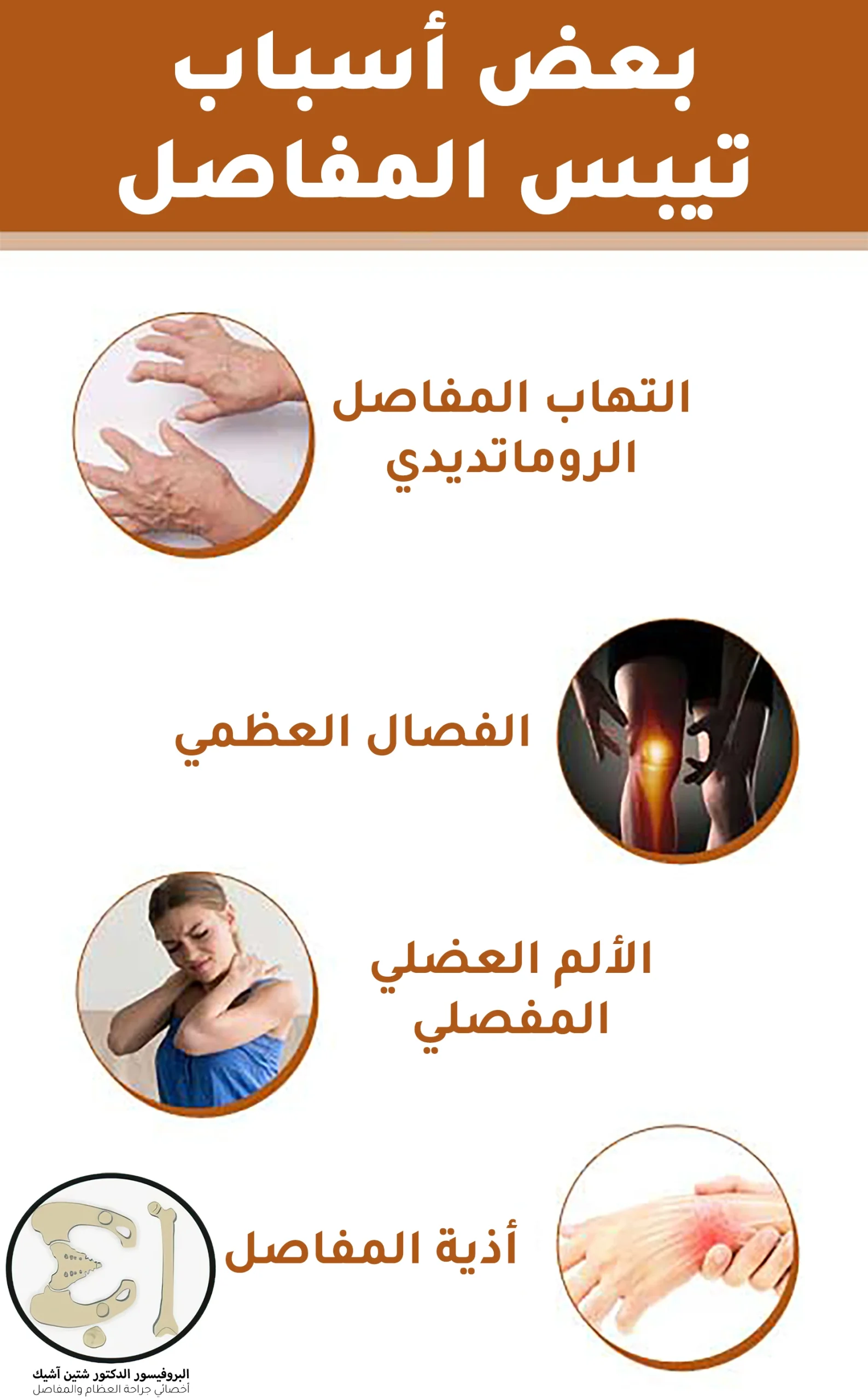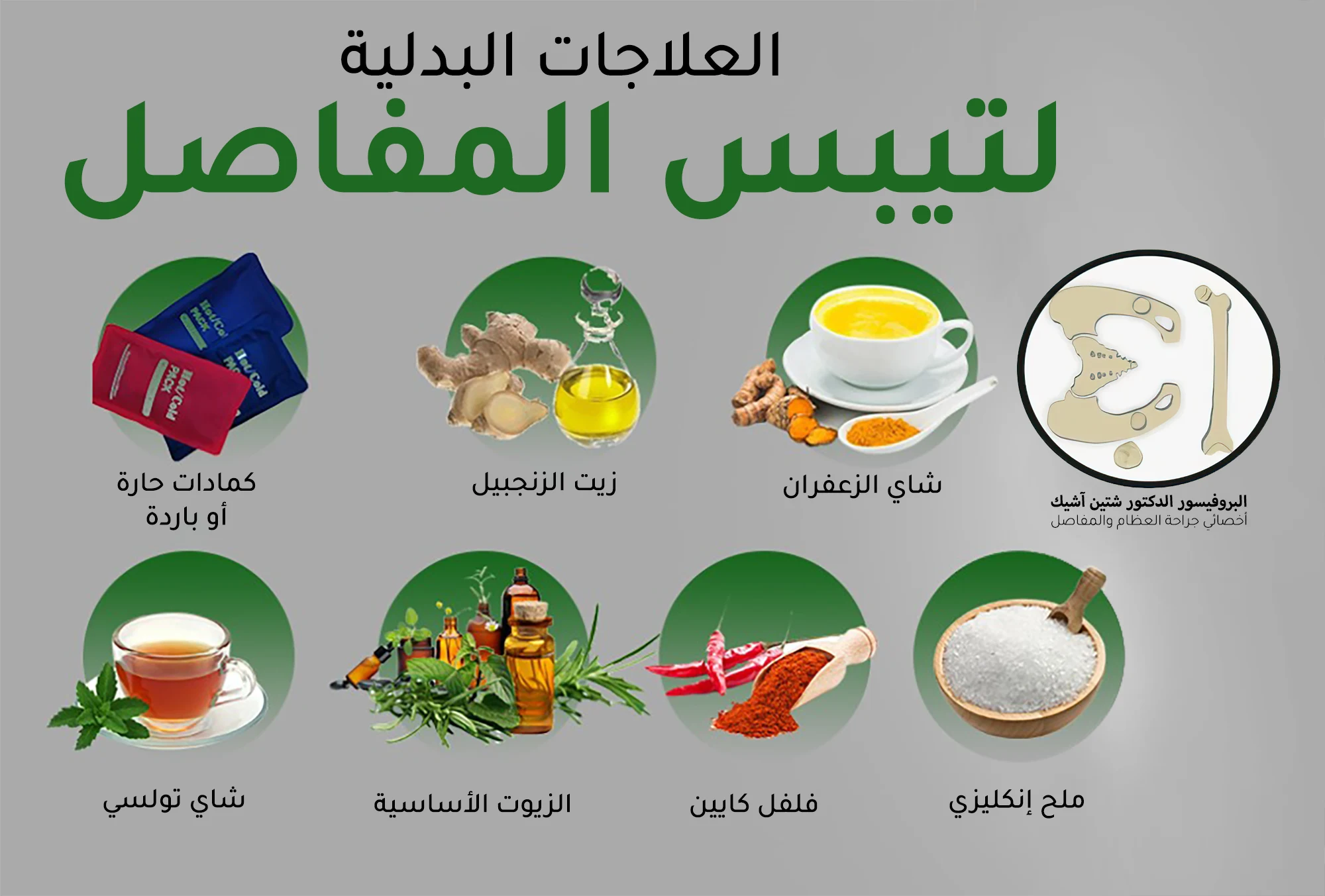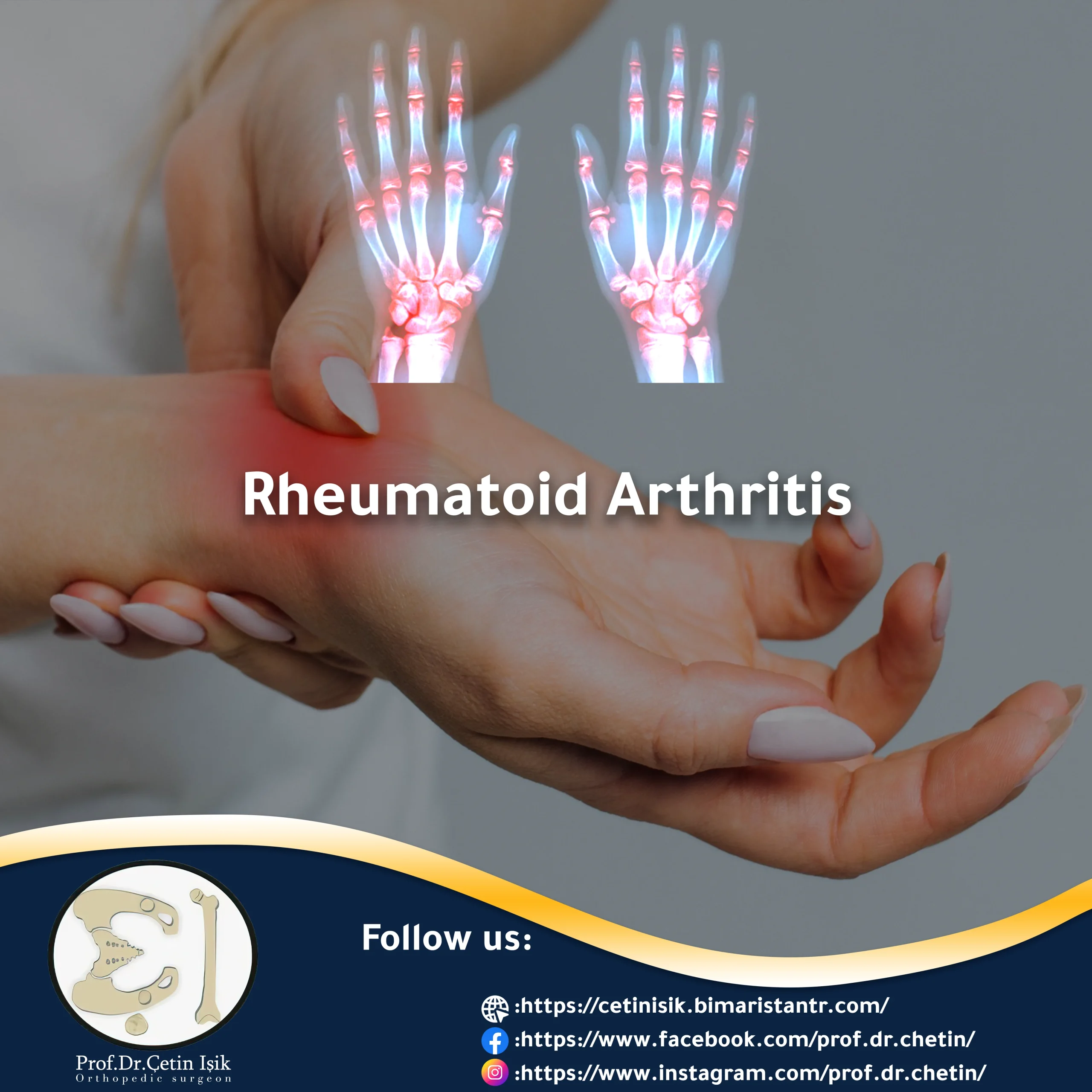Joint stiffness occurs with age, and it may be normal and not cause discomfort, or it may result from inflammation affecting the joints of the body. In this case, joint stiffness is treated, as this problem requires a solution because natural joint stiffness does not impede movement.
What is the treatment of joint stiffness?
It is working to reduce the severity of symptoms, reduce the period during which the joints remain stiff and achieve an increase in the range of motion in the joint so that the patient can carry out his daily activities without problems.
Joint stiffness is the feeling of difficulty moving the affected joint or a decrease in the range of motion in the joint. Patients often complain of joint pain followed by swelling, and the rest of the symptoms vary depending on the possible cause of the injury.

Joint stiffness may be a mild condition that affects the joints and muscles for several minutes after waking up or after sitting for a long time, and many may suffer from losing the ability to move the joint most of the time, especially in severe cases.
The most common ways to treat joint stiffness include:
- Medicines and ointments
- Injections
- physical therapy
- We take nutritional supplements
- folk ways
Causes of joint stiffness
Naturally, with age, the bones and joints are exposed to a lot of pressure on a daily basis. This leads to the erosion of the articular cartilage over time, as its surface becomes rougher, which impedes movement and causes pain.
Many of those who suffer from joint stiffness and pain when moving their joints may not usually be elderly, then there is another reason for this problem, noting that stiffness may also affect the muscles.
The most common diseases that cause joint stiffness and stiffness include:
Rheumatoid Arthritis
It is the most common cause of joint stiffness, which is a chronic inflammatory condition that affects the joints and leads to swelling, stiffness and pain. It has no cure and therefore it is not possible to relieve all its symptoms. It is enough to relieve pain and relieve symptoms.
Osteoarthritis.
It is called degenerative arthritis, as it affects the articular cartilage greatly, especially the knee, hip, fingers and neck, and causes symptoms that increase with time, such as pain, swelling, and a crackling sound when moving the joint and reaching the bone beaks.
Systemic lupus erythematosus
It is an autoimmune problem that affects the joints and tissues of the body, and doctors may need months to conduct the necessary tests to diagnose this disease. There is no definitive treatment for it, but some medications are prescribed to relieve symptoms.
Bursitis
A serous bursa is a small fluid-filled sac that protects the bone, muscle tendons and ligaments surrounding the joints. Its inflammation leads to joint stiffness and pain.
Bursitis may affect the shoulders and hips, and it can occur in the ankle. It is a temporary condition, the main treatment of which is rest for several weeks, and the patient may be asked to perform special exercises to speed up recovery.
Gout
It is characterized by being a sudden problem that affects any joint, but it begins in the big toe, usually with bouts of nocturnal pain that causes stiffness in the early times of the next morning. It is observed in men more than women.
Bone cancer
It is considered a rare cause of joint stiffness, and it may cause bone and joint pain and swelling. Treatment varies according to the type, size and degree of the tumor.

Symptoms of joint stiffness
The main symptom is certainly stiffness of the affected joints themselves, and may be accompanied by:
- Joint pain and surrounding tissues
- joint swelling
- flushing
- The hotness
- Difficulty moving with joint deformity
Types of joint stiffness treatment
Choosing the appropriate treatment methods for joint stiffness depends on determining the cause first. There are different causes, each of which requires special treatment, especially if your joint stiffness lasts more than 30 minutes. advice medical.
The best ways to treat joint stiffness include:
Use of heat or cold
Hot or cold compresses are applied to the stiff joint for 15-20 minutes several times a day, to reduce inflammation and swelling and to help the joint return to normal movement.
Heat treatment with hot compresses, in particular, has a remarkable therapeutic effect on the muscles and joints of the body. Applying a hot bottle or taking a hot bath may help improve circulation and muscle relaxation.
Medicines that do not require a doctor's prescription
Basically, in the treatment of joint stiffness, NSAIDs are given, which are the same drugs used in the treatment of arthritis. Patients usually resort to ibuprofen, aspirin, and naproxen.
steroids
If inflammation in a joint is what causes the stiffness of this joint, treatment with steroids or cortisones will most likely give a good result, as they inhibit the inflammatory process, which will magically improve symptoms.
Unfortunately, in advanced cases of rheumatoid arthritis, the treatment may not be effective, or the patient may temporarily improve after the injection, and another treatment must be resorted to.
Exercise
Exercise and physical therapy helped patients who had passed the acute stage of stiffness in the body avoid the need for joint stiffness treatment and future joint problems, in addition to being the best natural way to maintain weight because obesity stresses the joints and ligaments of the lower extremities.
Natural remedies
Alternative medicine or herbal medicine may offer a solution sometimes to treat joint stiffness, because natural treatment has few side effects and there are many studies that have proven its effectiveness.
Some patients may resort to taking nutritional supplements such as fish oil containing omega-3 fatty acids, which have been shown to be effective in reducing joint stiffness, knowing that there are recommendations not to exceed the daily dose of fish oil 500 mg.
It is possible to take flaxseed oil as well, and there is no specific daily dose in the treatment of stiff joints, but it is recommended to take 500 mg per day, knowing that the seeds in their condition do not provide any benefit, as they must be ground or squeezed.

Prevention of joint stiffness
Joint stiffness is prevented by maintaining a healthy and balanced diet and eating foods rich in fatty acids such as oil and fish, in addition to green vegetables and fruits.
The natural body needs to exercise regularly, and maintaining an appropriate weight reduces pressure on the joints and muscles, which contributes to the prevention of joint stiffness.
It is important to know that the joints of your body have limited capabilities, so if physical activity exceeds the normal limit and severe exhaustion occurs, this will lead to damage to the joints and the occurrence of stiffness and pain.
You can Contact us Learn more about joint stiffness and the best ways to treat and prevent it.
Sources:
- WebMD
- MedicineNet
- British Society of Rheumatology
- Arthritis Foundation
- “تيبس المفاصل والأساليب المتبعة في علاجه” (“Joint Stiffness and Methods of Treatment”) was written by Dr. Ahmed Kahwaji and published on March 21, 2025, on the Bi-Maristan website.
Common questions
Severe joint stress, such as carrying a bag for several hours in the same position, is one of the most important factors leading to stiffness.
Patients usually feel better after 2 weeks, but joints may take up to 3 months to fully heal.
Yes, applying olive oil or ginger can be a good treatment for joints.
The condition may worsen, especially if the stiffness is due to arthritis, so the condition should not be neglected.




